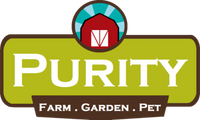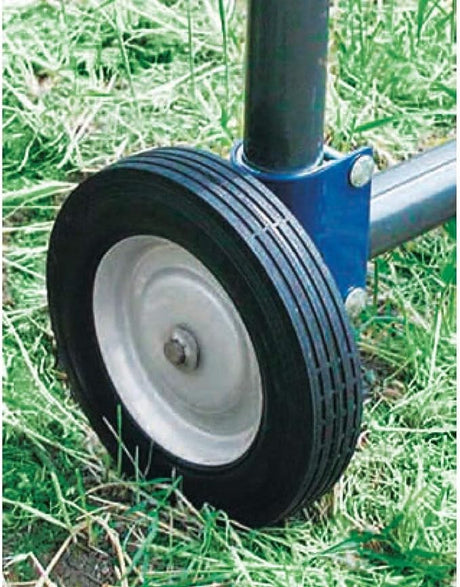Edge Wholesale
Light Duty 7 Foot Sheep Panel W/4' Walk Through Gate
$199.95 CADUnit price /UnavailableIn stock2W Equipment
2W Lemsco Medium Duty High Pole Gate W/Horseback Latch 5 Rail 7'8" With 6'10" Clearance
$686.23 CADUnit price /UnavailableIn stock2W Equipment
Lemsco High Pole Gate W/Horseback Latch 5 Rail
From $765.00 CADUnit price /UnavailableIn stockBraber Equipment
Gate Wheel for Round Pipe Tube Gates
$39.95 CADUnit price /UnavailableBackordered
Fencing Solutions
Frequently Asked Fencing Questions
What factors should I consider when planning a farm fence project to ensure it meets my needs?
What factors should I consider when planning a farm fence project to ensure it meets my needs?
When planning a farm fence project, several key factors should be considered to ensure the fence meets your needs effectively:
- Purpose of the Fence
- Type of Fence
- Post Spacing and Type
- Terrain and Ground Conditions
- Local Regulations
- Budget
- Maintenance Needs
- Climate and Weather Conditions:
By addressing these factors, you can design a farm fence that meets your specific needs, ensures durability, and fits within your budget. If you have any doubts, consulting with a fencing professional can provide additional guidance tailored to your project.
What type of fencing is best for my farm?
What type of fencing is best for my farm?
The best type depends on what you’re keeping in or out. For example, electric fences are great for cattle, while woven wire might be better for small animals like sheep or goats.
How high should farm fencing be?
How high should farm fencing be?
The height varies depending on the type of animal. For cattle, a fence should typically be 4 to 5 feet high. For horses, consider a height of 5 feet or more.
What materials are commonly used for farm fencing?
What materials are commonly used for farm fencing?
Common materials include wood, barbed wire, electric wire, woven wire, vinyl, and high-tensile wire. Each material has its pros and cons based on durability, cost, and maintenance.
How deep should fence posts be set?
How deep should fence posts be set?
Posts should generally be set about one-third of their total length into the ground. For example, if a post is 6 feet tall, it should be set 2 feet into the ground.
How often should I maintain or check my fencing?
How often should I maintain or check my fencing?
Regular inspections are important. Check your fence at least once a month for any damage or wear, and more frequently during or after severe weather.
What is the cost of installing farm fencing?
What is the cost of installing farm fencing?
Costs vary widely depending on the type of fencing, the length of the fence, and local material prices. It's best to get quotes from local suppliers and installers.
How can I prevent my fence from rusting or rotting?
How can I prevent my fence from rusting or rotting?
Use galvanized or coated materials to resist rust, and consider treating wooden posts with preservatives. Regular maintenance, such as painting or sealing, can also help.
What are the legal requirements for fencing on a farm?
What are the legal requirements for fencing on a farm?
Legal requirements can vary by location, so it’s essential to check local regulations regarding fence height, materials, and property lines.
How do I handle fence damage caused by animals?
How do I handle fence damage caused by animals?
Inspect the damage and determine whether repairs or replacement are needed. Reinforcing the fence with stronger materials or adding more frequent checks can help prevent future issues.
Can I build my own fence, or should I hire a professional?
Can I build my own fence, or should I hire a professional?
It depends on your skills and the complexity of the project. While DIY can save money, professional installers can ensure the fence is built to last and meets local codes.












